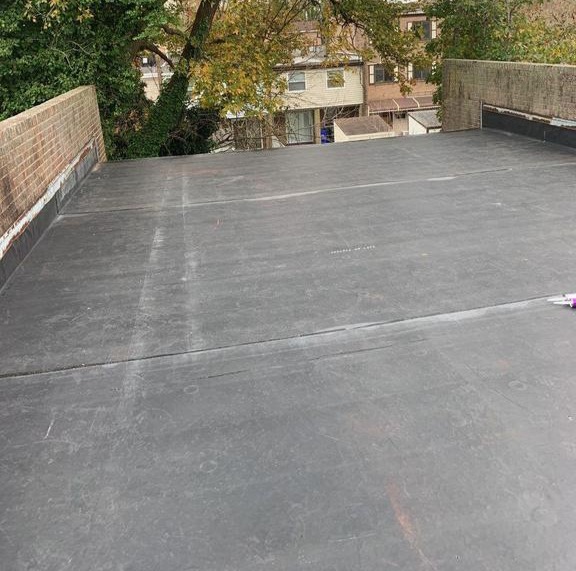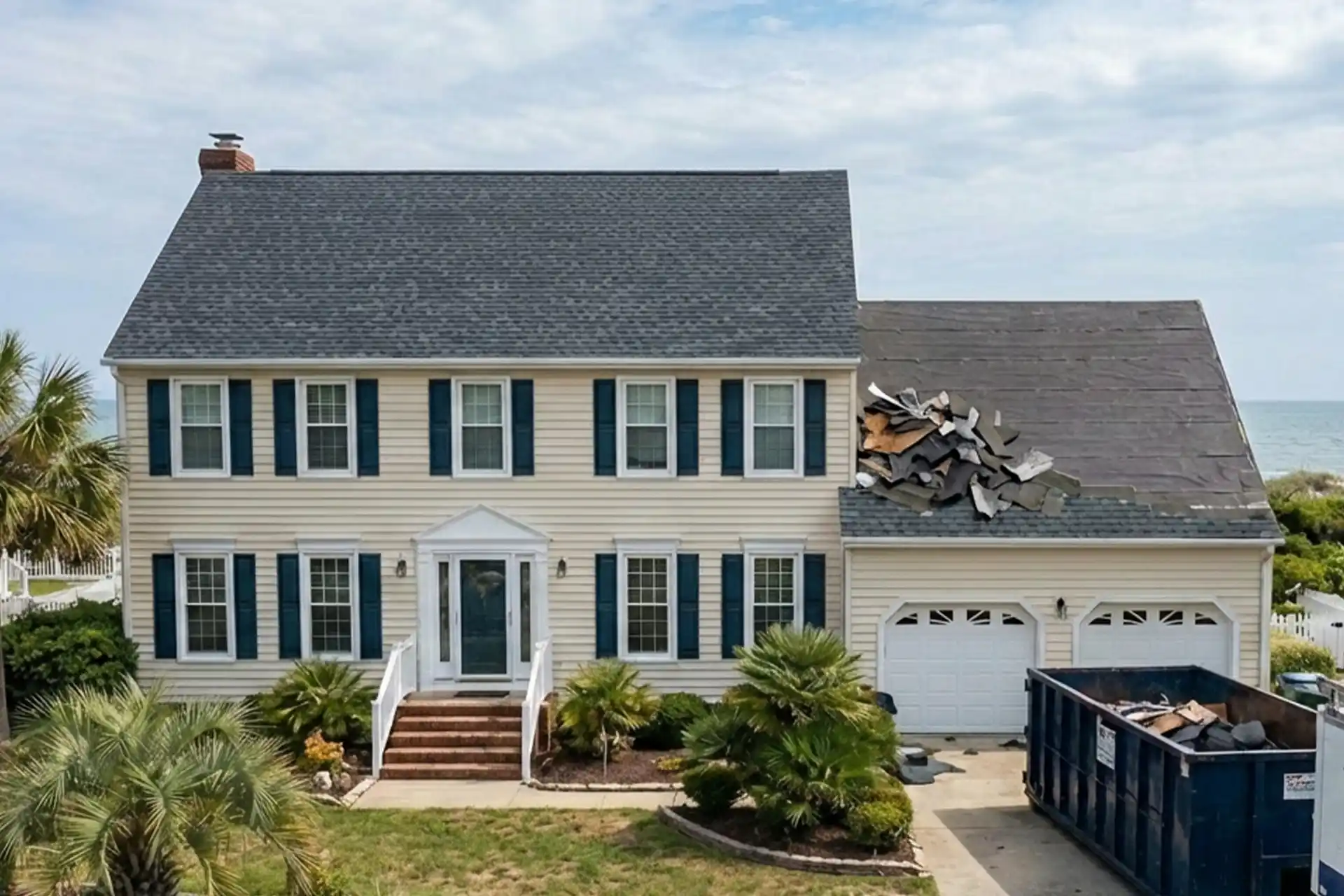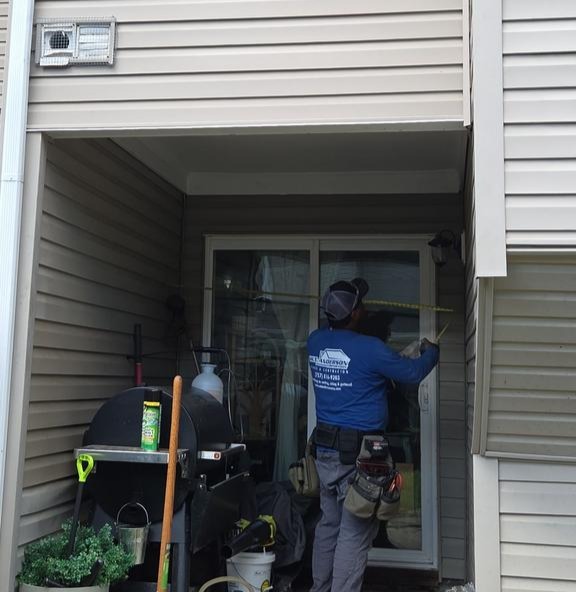Are commercial roof repairs tax deductible?
Use our quick contact form to get in touch with our team. We will respond shortly.

If you own or manage a commercial building in Virginia Beach, Norfolk, or across the Hampton Roads area, you already know commercial roof repairs aren’t cheap. So when the invoices come in, one of the first questions many business owners ask is:
Can I write this off on my taxes?
The answer: In most cases, yes—commercial roof repairs are tax-deductible.
But there’s a little nuance between what’s considered a repair vs. a capital improvement, and that difference affects how and when you can deduct the expense.
Let’s break it down.
What the IRS Says About Roof Repairs
According to the IRS, routine maintenance and necessary repairs to keep your property in operating condition are typically fully deductible as business expenses in the year they’re performed.
That includes things like:
- Patching a leak or crack
- Fixing damaged flashing
- Repairing storm damage
- Sealing seams or ponding issues
- Replacing a few worn or lifted membrane panels
✅ These are considered repairs—and repairs are deductible under IRC Section 162 as ordinary and necessary business expenses.

What’s Not an Immediate Deduction: Capital Improvements
On the flip side, major roofing work that improves the property's value or extends its useful life—like a full roof replacement or adding a second membrane layer—is generally considered a capital improvement under IRC Section 263(a).
That means you can’t deduct the full cost in the same year. Instead, you must depreciate the expense over time, usually:
- 39 years for commercial buildings under the standard Modified Accelerated Cost Recovery System (MACRS)
- Or possibly faster using bonus depreciation or Section 179 expensing (more on that below)
Hampton Roads Example:
If your business in Norfolk has a flat TPO roof that starts leaking after a storm, and you hire WT Anderson to patch and seal the affected area for $3,200—
→ That’s a deductible repair. You can typically write it off this year.
But if you decide the roof is at the end of its life and you invest $75,000 in a complete new roof system for your Chesapeake office building—
→ That’s a capital improvement. You’ll depreciate that cost over time.
What About Partial Replacements?
Here’s where it gets tricky: Let’s say you replace 30% of the roof membrane due to storm damage. That could fall into a gray area. In some cases, the IRS may view that as a restoration rather than a repair—making it a capital expense.
This is where your tax professional comes in. A good CPA can help categorize the expense correctly based on IRS guidelines and your building’s overall value.
Can You Accelerate the Deduction?
Yes. Under the Tax Cuts and Jobs Act, businesses may be able to:
- Use Section 179 expensing to immediately deduct up to $1,220,000 (2024 limit) of qualifying improvements
- Take advantage of 100% bonus depreciation (phasing down in future years)
- Utilize the De Minimis Safe Harbor (typically for costs under $2,500 per invoice or item)
These options might apply if your roof repair is bundled with other improvements, or if you’re installing energy-efficient upgrades that qualify for special incentives.
📝 Tip: Keep detailed invoices and descriptions of the work performed. WT Anderson can provide itemized breakdowns to support your deduction claims.
Final Thoughts
If you’re investing in commercial roof work anywhere in Hampton Roads—from a strip mall in Virginia Beach to a warehouse in Suffolk—it’s smart to know which costs you can deduct and when.
The bottom line:
- Repairs = usually tax-deductible this year
- Replacements or upgrades = usually capitalized and depreciated
- Gray areas = check with your CPA for guidance
And if you need a licensed commercial roofer who understands the difference—and can document it properly—we’re here to help.
Schedule a commercial roof inspection with WT Anderson, and we’ll give you an honest assessment of what’s fixable, what’s replaceable, and how to keep your costs (and taxes) as low as possible.
Sources:
- IRS Publication 535 – Business Expenses
- IRS Tangible Property Regulations Overview (Section 162 vs. 263)
- Tax Cuts and Jobs Act – Section 179 & Bonus Depreciation
- National Roofing Contractors Association (NRCA)





